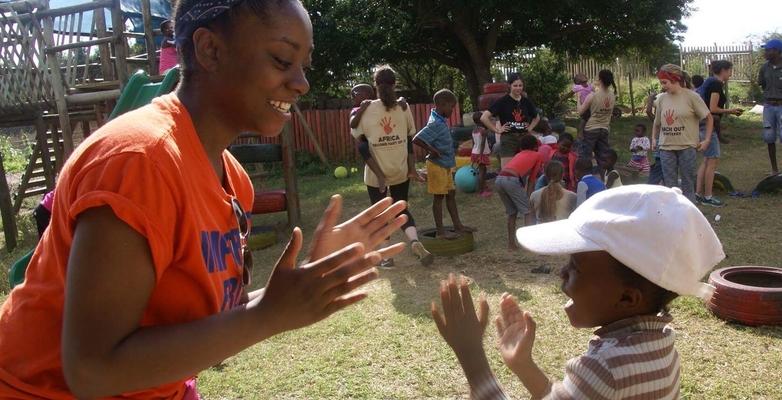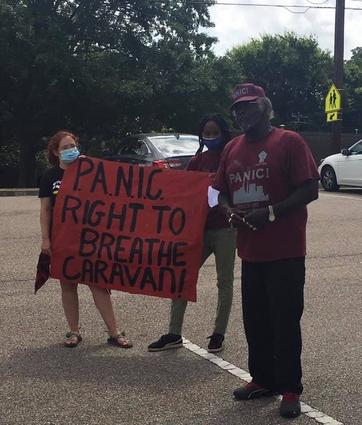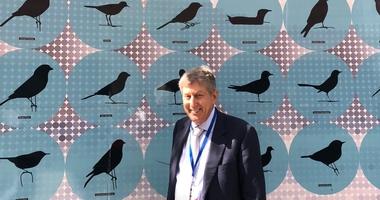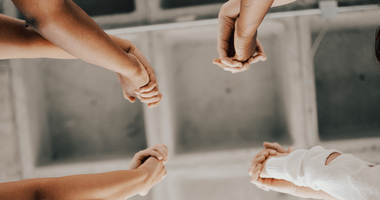
2022 Climate Justice For All Grantees Are Taking Grassroots Action to Fight Environmental Injustice
We can’t go back to a world without climate change. And we can’t waive a wand an undo past systemic injustices. But what we can do – and what these incredible groups are working toward – is create a better tomorrow for all.
Across the United States, low-income and BIPOC communities have found themselves squarely in the path of the climate crisis. But geography alone is not the cause.
Rather, a cycle of systemic, structural, and institutional injustices has meant that marginalized groups suffer more from the effects of climate change and exposure to environmental pollution, manifesting in everything from exacerbated health problems to property destruction.
This then leads to further inequity.
It’s a vicious, unjust cycle. But by definition, these marginalized communities have historically not had agency, having been left out of the decision-making processes that led and continue to leave their own homes and families being put in harm’s way.
But climate justice demands that these places and people become an active part of the climate conversation. And in response to that call for grassroots activism on environmental and racial justice issues, Climate Reality established the Climate Justice For All Grants program.
>> Learn More About Our Climate Justice For All Grants Program <<
The 10 grant recipients below mark the third class of grantees since the program’s creation in 2020. We are proud to support these grassroots partners in the fight for environmental justice.
Each of our grantees’ projects help empower the vital work of BIPOC communities, frontline and historically marginalized groups, and youth activists working to call attention to the links between racial and climate justice.
Read on to see the incredible work they are doing in their communities.
Bayview-Hunters Point Community Advocates Inc.
The Bayview-Hunters Point neighborhood has the highest mortality rates and the lowest life expectancies in San Francisco – and that’s why Bayview Hunters Point Community Advocates Inc. is training future citizen leaders in advocacy, local data analysis, and community outreach. These youth advocates will then work as part of a Community Toxic Index Program to catalog more than 300 sites near environmental hazards in Bayview Hunters Point for lived experiences, concurrently training the young people in participatory research, document and data collection, analysis and mapping, ethnographies, and community empowerment.
Girl Plus Environment Inc.
Girl Plus Environment Inc.’s Protecting our Energy project provides workshops to educate, engage, and empower Black and brown women living in Atlanta to fight for affordable, clean energy and lower their family’s energy burden. The program responds to the growing disparity in energy bills in Black neighborhoods by empowering individuals to feel confident in speaking out on clean energy issues.
Through education and awareness-building, Protecting our Energy engages Black and brown women across Georgia in energy advocacy, preparing them to speak out and make sure their voices are heard.
Mycelium Youth Network
The Mycelium Youth Network Youth Leadership Council is working with local high school students in Oakland, California to carry out a community needs assessment, which will identify two-to-four actionable solutions to local climate justice challenges and develop schools as community-based climate-resilient hubs.
The Network plans to hold workshops to develop students’ skills in needs assessment, community organizing, and participation as it relates to climate resilience and mitigation.
People Against Neighborhood Industrial Contamination

People Against Neighborhood Industrial Contamination, also known as PANIC, will implement a People’s Relocation Plan for residents who live within the North Birmingham, Alabama’s 35th Avenue Superfund Site.
This grassroots, equity-centered relocation, remediation, and redevelopment plan will work to identify residents who desire to be compensated or relocated from the Superfund site, and assess components needed for a more-just and equitable relocation and buyout program.
This project is expected to impact the 700-900 households experiencing extreme pollution in the 35th Avenue Superfund Site area.
Rio Grande International Study Center (RGISC)
The RGISC’s first-ever Laredo Climate Cohort will engage 25 college-aged students in a series of workshops to mobilize them to combat the on-going climate crisis in the South Texas border region through the creation of an active chapter at the local college level.
Workshops will increase leadership skills in public speaking, grassroots organizing, community outreach, and carrying out a strong direct action in response to environmental issues. The training workshops will ground students in the science of climate change and applying that knowledge to local climate concerns.
Samuel DeWitt Proctor Conference, Inc.
The Dialogues for Justice project will create avenues for intergenerational Black communities to begin having conversations about environmental racism and determine how they can tap into the environmental justice movement.
Through clergy-led Climate Justice Sundays, virtual climate café meetings, and a final environmental justice town hall, the Samuel DeWitt Proctor Conference’s project will work with Black faith communities and HBTIs/HBCUs to grow awareness and engage more Black people of faith, students, and scholars to advocate for environmental justice and ecojustice.
This project will work to engage community members in Atlanta, GA; Memphis and Nashville, TN; and Dallas, TX.
Sustainable Water, Energy & Economic Transition in Alabama (SWEET Alabama)
SWEET Alabama’s Green Economies Youth Fellowship is a 16-week part-time paid fellowship that will train five youth fellows on how to effectively organize their peers, expand their political education around climate and environmental justice, and learn vocational skills to energy retrofit housing in Birmingham, Alabama.
The skills the youth will gain in this fellowship will allow them to effectively organize their peers to address the energy burden in their own neighborhoods while benefiting the community with home energy retrofitting kits free of cost.
Water Collaborative of Greater New Orleans
Cancer Alley is an 85-mile industrial corridor located between Baton Rouge and New Orleans, Louisiana, housing over 150 petrochemical facilities and complexes. The Water Collaborative of Greater New Orleans will conduct water quality testing in the River Parishes of Louisiana, where community members tend to be disadvantaged, marginalized, and lower income.
This project will work with community members to understand their challenges, insights, and research goals while testing source waters and residential taps for cancer-causing contaminants, and engage community members to become advocates and citizen scientists. The Water Collaborative of Greater New Orleans will publish test results, create user-friendly maps to explore community, utility, and industrial overlap, and identify gaps and challenges to ensuring higher quality water in the River Parishes.
West Street Recovery
West Street Recovery will develop five community disaster preparedness hub houses in Northeastern Houston, an area that is extremely prone to flooding and climate disasters.
The hub houses will be equipped to rapidly distribute supplies, provide advice, collect information, and serve as a gathering point for families impacted by climate disasters. Each hub will have trained hub captains prepared to collect and relay information, help neighbors make decisions, distribute supplies, and report impact to government officials.
We the People of Detroit
We the People of Detroit will lead a water policy education and engagement project that aims to raise awareness and mobilize the community to act against the impending December 2022 deadline for water shutoff moratoriums. This project will address water insecurity driven by unaffordable water rates and inadequate investment in water infrastructure for the residents of Detroit.
We the People of Detroit will engage and train eight local women on various topics about public health and water insecurity in the Detroit area so they can take that knowledge along with their lived experiences to engage and educate their neighbors on the coming end on water shutoff moratoriums. Community members will work to contact local, state, and regional government officials and discuss how they can shape policies to increase accessibility to water.
What You Can Do
We cannot go back to a world without climate change. And we cannot waive a wand an undo past systemic injustices. But what we can do – and what these incredible groups are working toward – is create a better tomorrow for all.
We can still avert climate catastrophe and protect the poor and vulnerable peoples who’ve done the least to cause this crisis.
Learn more about what you can do to make a difference in our fight for a just and healthy future, even in these challenging times, by joining our email activist list today.




